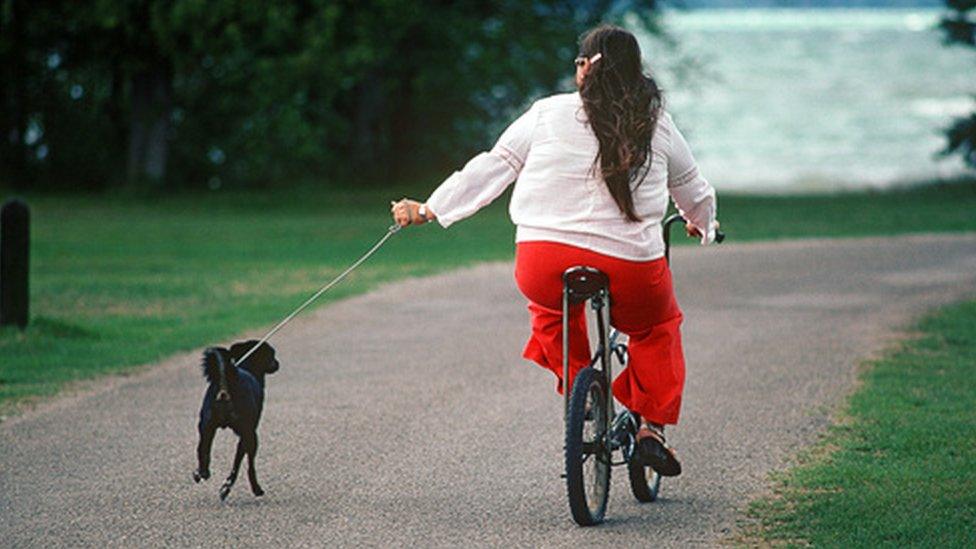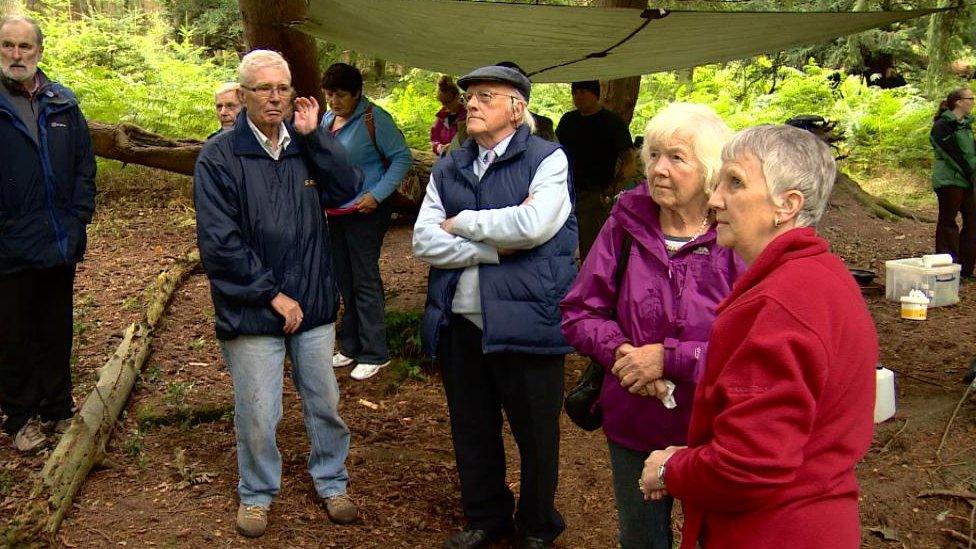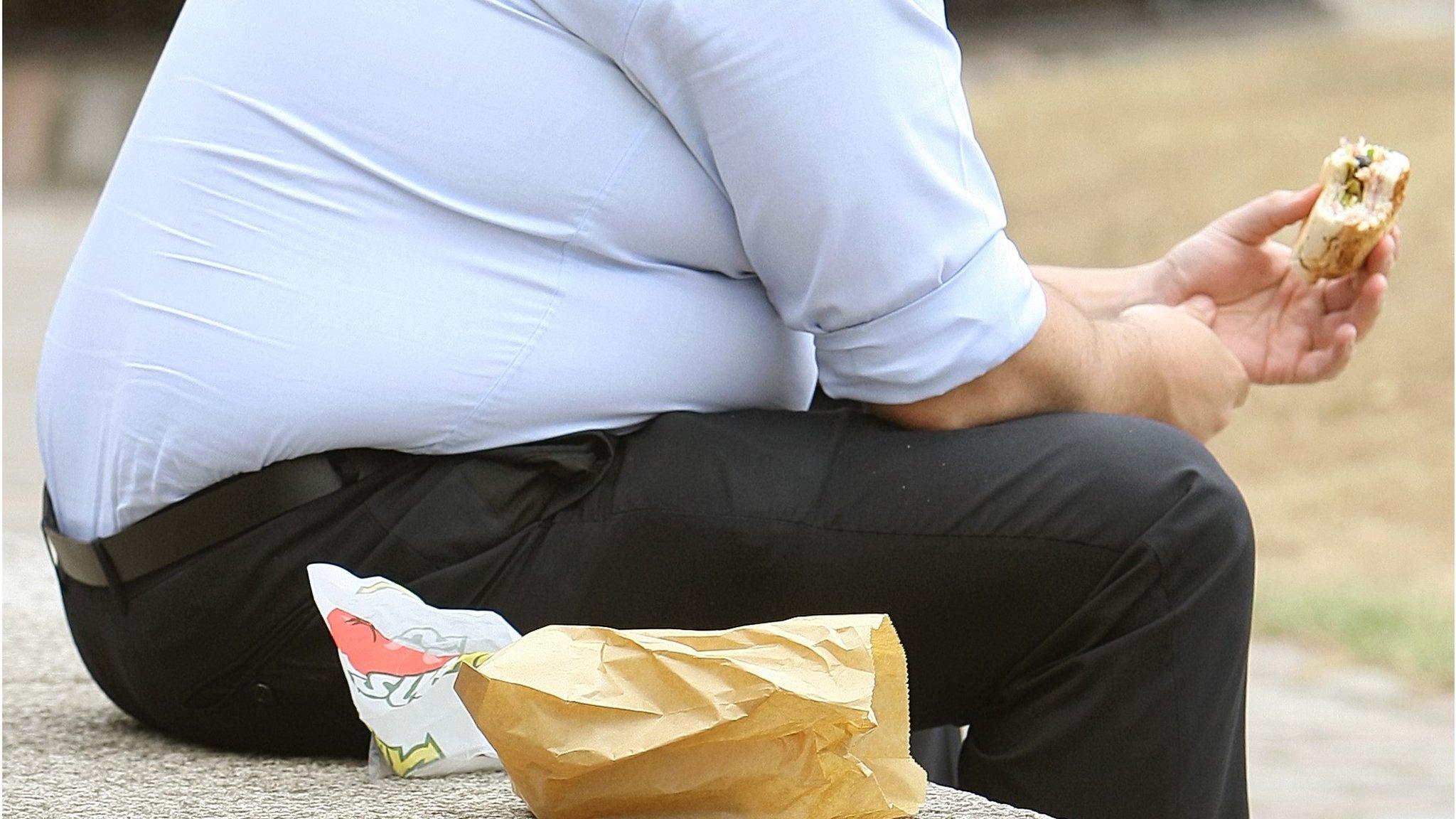Doctors urged to offer 'exercise outdoors' prescriptions
- Published

Doctors in England and Wales should offer overweight patients "green space" prescriptions to get them exercising outdoors, says the Local Government Association.
The prescriptions could provide free visits to national parks or gardening sessions at National Trust properties, for example.
A small number of GPs already do this.
The LGA says it needs to become universal policy to tackle the nation's obesity crisis.
It's calling on NHS Clinical Commissioning Groups to drive the initiative forward.
In Dorset,, external doctors already prescribe walks, conservation work, gardening and sailing.
East Riding of Yorkshire Council, external has developed an IT system which links up GPs with leisure centres so they can book patients directly on to exercise plans.

The LGA, which took on responsibility for public health under the recent NHS shake-up, says exercise prescriptions would encourage people to be more active, lose weight and keep fit.
Spokeswoman Izzi Seccombe said: "There are some instances where rather than prescribing a pill, advising on some type of moderate physical activity outdoors could be far more beneficial to the patient.
"There are already some good examples where this is being piloted in the UK and it is something we should consider on a nationwide basis."
The Royal College of General Practitioners said any decision to invest in social prescribing schemes, and roll them out more widely, must not be an alternative to investing in general practice services.
Spokesman Dr Steve Mowle said: "Social prescribing schemes can certainly be beneficial to a patient's overall health and wellbeing - as some pilots have shown - but to be effective, there needs to be better integration between health and community services, so that GPs and our teams can signpost our patients most appropriately."
One in four women and one in five men in England do less than 30 minutes of moderate physical activity per week - way below the recommended amount of 150 minutes per week.
Physical activity can help to prevent and manage over 20 chronic conditions and diseases, including some cancers, heart disease, type 2 diabetes and depression.

People who do regular physical activity have:
up to a 35% lower risk of coronary heart disease and stroke
up to a 50% lower risk of type 2 diabetes
up to a 50% lower risk of colon cancer
up to a 20% lower risk of breast cancer
a 30% lower risk of early death
up to an 83% lower risk of osteoarthritis
up to a 68% lower risk of hip fracture
a 30% lower risk of falls (among older adults)
up to a 30% lower risk of depression
up to a 30% lower risk of dementia
Source: NHS Choices
- Published26 August 2016

- Published25 July 2016
